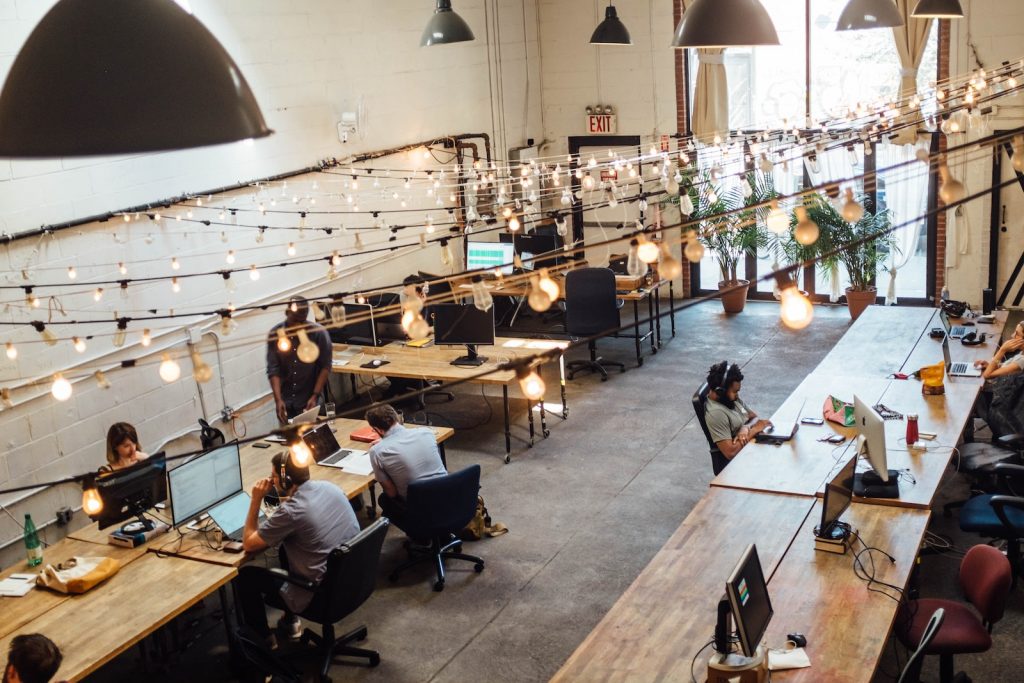Will co-working spaces becoming the “New Normal?”
After more than a year of working from home due to the COVID-19 pandemic, it is safe to say that it certainly brought a wave of change and adjustment to the modern workplace and space. As we go back to what we once considered normal, trends on the future course of work predict a significant shift toward remote work. Here is what to expect when it comes to how we envision the new workspaces.
The Future of Work
While it is evident that the pandemic caused a massive and unexpected transition from the traditional office environment to working online from our own homes, as the situation gradually returns to normal, there is yet to see what’s in store for the future of work. Based on current trends and predictions, however, there are some evident factors that are already contributing to changes within workplaces.
The rise of freelancers
As more and more industries find ways to go digital, post the inevitable pandemic-induced working-from-home setting, many people tend to lean towards this format of working from home even as we approach the post-pandemic era. Working from the comfort of one’s home, together with companies’ shifting preferences toward blended workforce models (freelance and full time), are factors that have caused a spike in the demand for freelancers, which consequently lead to an increasing number of freelancers worldwide and in various industries.
Hybrid and fully remote work models
In an attempt to support employees returning to offices and aid the gradual process of getting back to normal, many employers are offering flexible work models that are adjusted to employees’ needs. Hybrid models, for example, allow employees to work from home for a couple of days throughout the week and from the office during the remaining days. On the other hand, some companies have either gone fully digital and remote or have chosen to allow employees to work fully remote if their job duties don’t require their in-person presence in the office. The latter model was even employed by Facebook, the multinational company whose workforce totals around 60,000 employees.
So what does this mean for office spaces?
As companies and enterprises figure out how they will operate in a post-pandemic setting, many employees consider whether they want to return to the office. With models such as remote first, optional, partial, or fully remote, many renowned companies like Reddit, Spotify, Verizon, and Twitter offer their employees the flexibility to choose where they feel most comfortable working. Moreover, many companies gave up their real estate during the pandemic. Therefore they are either establishing a fully remote work setting even post-pandemic or embracing co-working spaces as they find new solutions.
Like many other work settings and businesses, co-working spaces also suffered a great loss during the pandemic due to the strict lockdown measures put in place to control the spread of the virus. Now, as many countries are easing restrictions, individuals and companies who have chosen to work remotely are turning to them as the space where they can work individually and with a team.
Benefits of Co-working Spaces
After returning to work post-lockdowns, co-working spaces are welcoming arrangements that can be utilized by startups, small companies, freelancers, or simply anyone who needs a place where they can get work done. They are the perfect arrangements that feel like a more relaxed office environment and a less distracting environment than homes can be. If you choose shared office spaces as your next workspace, these are some of the benefits you can expect from them:
Networking opportunities
When it comes to work, there are times when you need to be in your zone and undisturbed by other people in order to get things done, while sometimes you may benefit from having someone or a team around you in order to come up with new ideas or a solution to a problem. Whatever the case, co-working spaces can provide both these settings since you can bring your headphones and work on your own or collaborate with other people.
Since their doors are open to everyone, co-working spaces are the perfect place to meet new people and benefit from networking opportunities. As social learners, we can learn and grow by working around other people, but that shouldn’t necessarily include working strict hours in an office.
More productivity
While working from home has its advantages, it can often become a distracting environment that makes it difficult to focus on work only. Whether it is kids, people you share an apartment with, loud neighbors, poor internet connectivity, remote work from home can sometimes be less than ideal for productivity. On the other hand, co-working spaces are equipped with anything you might need—from high-speed internet to designated meeting rooms, comfortable seats, beverage stations—you name it. They are the optimal space for getting into your work zone and finishing task after task with more focus.
Cost-efficient
Whether it is a small enterprise or a large corporate company, renting office spaces can be both a hassle and expensive. By turning to co-working spaces as a designated place to work, companies and individuals can save on utility bills, office supplies, internet bills, and beverages, which you pay in one place through an all-in-one monthly membership. Co-working spaces are also a smart choice cost-wise if your work is project-based and involves working at irregular intervals, such as having more to do during one month and then being less busy the other. Through a monthly membership, you can significantly cut down on payment compared to the typical long-term rental leases.
More flexibility
Co-working spaces are the epitome of flexibility; they offer flexible options on membership agreements. Their environment is typically more comfortable and relaxed, and a growing number of them are offering 24/7 open hours. Both companies and individuals can benefit from more flexibility, especially when we are transitioning to new business and work models. The flexibility that co-working spaces offer is also very convenient for freelancers and people who work at irregular hours and instances when you work with clients or coworkers that operate in different time zones.
Co-working Spaces – Final Thoughts
The business world is undergoing changes that directly influence the way we work and the spaces we work in. As remote work becomes the norm for many employees and employers, co-working spaces can be the new designated place for work whenever working from home is just a little too homey.


